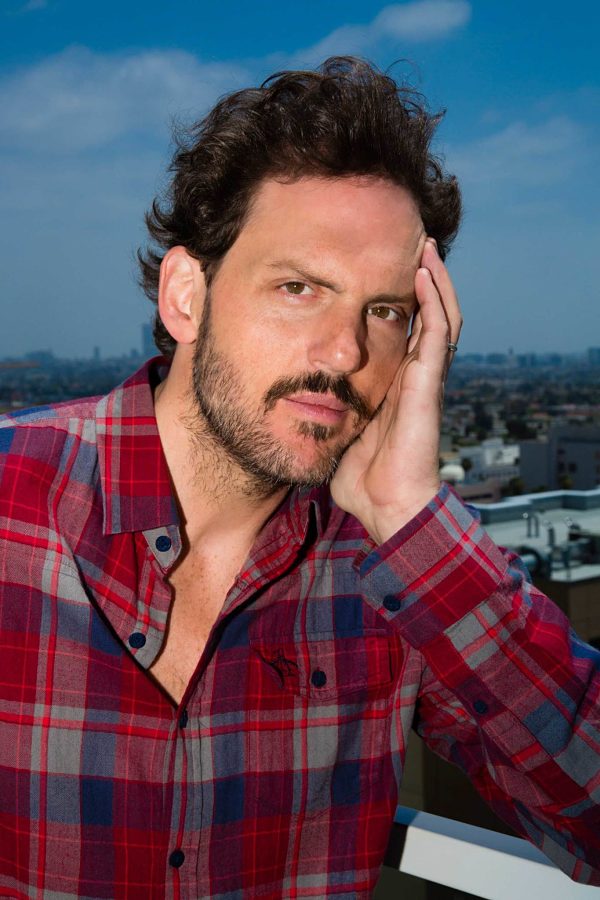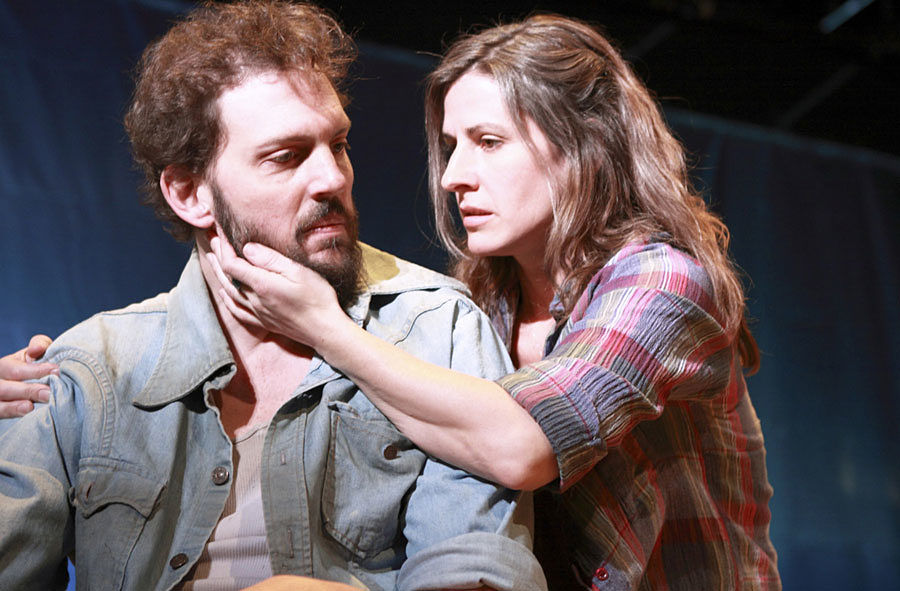Silas Weir Mitchell has alternated stage and TV work for much of his career. While working in Los Angeles in the 1990s and early 2000s, he was active as an actor and director in L.A.’s small theatre scene. Now that a regular role on the series “Grimm” has taken him to Portland, Ore., more or less full-time, he’ll next appear at Portland Center Stage in Richard Greenberg’s Three Days of Rain, opposite “Grimm” costar Sasha Roiz (May 17–June 21).
How long has it been since you’ve been onstage?
I actually haven’t done a play since I got the pilot for this show. I was in a play at Circle X Theatre Company in L.A. at the time, and I had to leave the show for a month, which was rehearsal; I made it back for opening night and faked my way through a performance. It was The Chinese Massacre (Annotated) by Tom Jacobson, about a lynch-mob massacre of a bunch of Chinese immigrants in early 20th-century Los Angeles, in what is now Chinatown.
How did you stumble into doing theatre in L.A.?
It wasn’t a stumble—it was a headlong rush into it. There was no misstep involved there. I planned it. I’ve always been a theatre person, because that’s what I started doing in grade school. I went to college at Brown and was really a religious studies major, but the theatre people said to me, “You’ve done so many plays, come graduate with us.” Then I went to theatre school at UC San Diego.

Where did you start your career?
First I went to New York and did terrible, terrible plays in basements, except for one at HERE. It was a waste of time. I just had to cut bait; being on the periphery of things in New York is like being on edge of tornado; you just get chewed up. So I decided to go to L.A., partly to do some TV work but also to consciously work in the theatre scene there.
You’re doing Three Days of Rain. Have you seen the play before?
I’ve come across it but never studied it in depth. I haven’t even begun rehearsals yet, so I’m a little leery of describing what the play is. But what I can say is that it’s a play that has a very unique tone, and if it isn’t imbued with the real humanity of these people’s lives, it’s an intellectual exercise. The language is the language of hyper-intelligent, overeducated people. It reminds me of the Glass family, from Salinger—people who are prisoners of a kind of mind. And if you don’t have an inner life that’s really vibrant, it’s a tough path; it’s a narrow path.
You play Walker and his father Ned in two separate times, and the play turns on the son not ever quite knowing the father’s real story. When you’re playing Walker, is it hard to forget what Ned knows?
It feels like the first act is a question, and the second act is an answer. But it’s written in such a way that the vehemence of Walker’s impression of his father’s life—it’s very easy not to “know.” His is a deeply held misapprehension.
You’re named after a 19th-century ancestor, the physician and author Silas Weir Mitchell. What do you know about him?
I’ve read a bunch of his writing; I’ve been to the college of physicians in Phildelphia. He was a known quantity in his day—a surgeon during the Civil War who worked at Turners Lane Hospital. He coined the term “phantom limbs.” He was working on a lot of amputees who had come out of the war, and he noticed that people would say, “Doc, my thumb really hurts,” and they would be amputated at the elbow. He realized there were things going on in the brain that the body didn’t know about.
You were a religion major and you’re on a show about the paranormal. Where do you stand personally on the supernatural?
My only belief, really, is that people believe in it. I’m a skeptic. I’ve done a lot of reading of a guy named Ken Wilber. My main belief is around the evolution of human consciousness as a nonphysical entity. I’m not a strict materialist; you can’t see consciousness, you can’t see a concept.
But as far as religion goes, I think it’s a universal defense against fear of death, and it’s generally something that is deleterious to the health of the human species. I’m into mystery. Like Christopher Hitchens said, “Why do we need more mysteries when we have the Hubbell Telescope?” Nobody has come back to life, man. That’s Frankenstein.
That’s a nice segue to asking you about “Grimm,” where you play a wolf-like creature called Monroe.
Well, fairy tales are a subset of mythology, which is part of how human beings learn about themselves: “Hmm, that didn’t work out when Prometheus stole that thing. We live in a universe that is unforgiving, and we have to be careful with natural forces like fire because they’re powerful.” The show “Grimm,” especially in its early stages, was very much about the psyche. Everybody lives with a kind of dichotomy, and has an element of their psyche that is more truthful in some ways than the human mask they parade around in. My character is a reformed version of a Big Bad Wolf.
How do you research a role like that?
I read The Werewolf in Lore and Legend, and it has real quotations from French people talking about werewolves running around in fields stealing children from houses. The Loup Garou, as it was called, was a real thing in French countrysides. They were probably mad people, crazy people, men who never cut their hair.
Why does “Grimm” shoot in Portland?
You couldn’t shoot anything that could be a spooky black forest in L.A., where it’s permanent noon. Around here there’s moss, and the moss has ferns growing out of it, and there’s moss growing on those ferns. If you put something down for too long in Portland, it starts to compost.
Do you like it there? Any recommendations?
Go to any corner in Portland, throw a penny behind your back, and you’ll hit a coffeeshop, a brewery or a deli. Or a food truck. It’s a very healthy town. Here you’re an oddball if you don’t have a tattoo. And the iconoclasm is earnest. It’s not because it’s cool. People don’t buy coffee from Kenya and then roast it in their garages because they’re trying to be cool; they do it because it’s the coffee they like, it’s fair trade. It’s deep. It’s not a sort of trifilng dalliance with oddballness. Working in a business where you just go where you go where the work is, we were very fortunate to have landed in Portland, and not Dallas (sorry, Dallas).
What’s the tackiest thing you own?
I have a leather jacket with a Nehru type of collar, but with really wide ’80s shoulders and buttons, like on a Chinese jacket. It’s lime green. It’s like something Steven Seagal would wear. I don’t wear that anymore.
What’s your favorite guilty pleasure?
Not exercising, eating whatever I want, reading all day. Not doing anything, not taking the dog for a walk, contributing in no way to the betterment of the world except playing in my own imagination all day.
Have you been following the controversy over Equity’s proposed changes to the L.A. 99-Seat Plan?
Yeah, I heard something about it. So basically no Equity actors get a waiver? Thanks, union. Guess they can just be a New York-based union, then.


